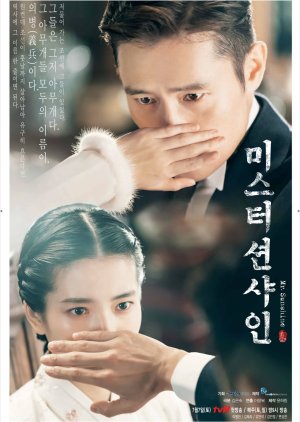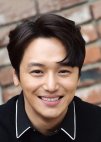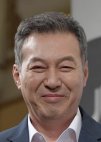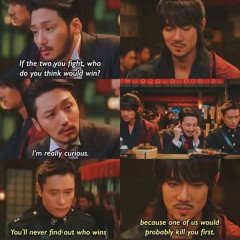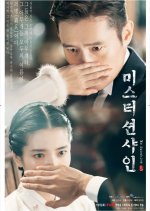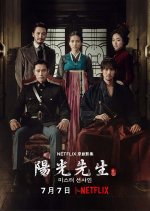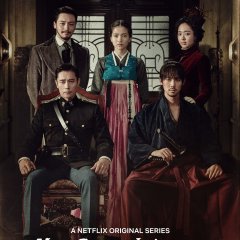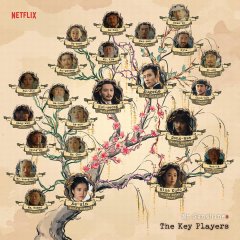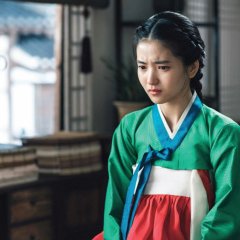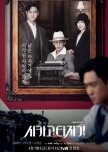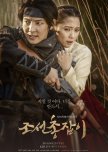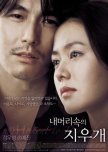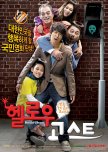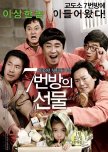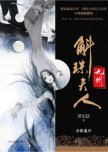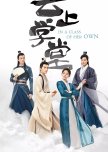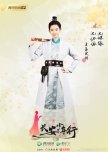 "I kept getting rejected from auditions": "Queen of Tears" Lee Joo Bin Talks About Her Past Struggle
"I kept getting rejected from auditions": "Queen of Tears" Lee Joo Bin Talks About Her Past Struggle - Português (Portugal)
- 한국어
- 中文(简体)
- 中文(台灣)
- Título original: 미스터 션샤인
- Também conhecido como: Miseuteo Shunshain , Mister Sunshine , Mr Sunshine , Sr. Sunshine
- Roteirista: Kim Eun Sook
- Diretor: Lee Eung Bok, Jang Young Woo
- Gêneros: Militar, Histórico, Romance, Melodrama
Onde assistir Mr. Sunshine: Um Raio de Sol
Subscription (sub)
Elenco e Créditos
- Lee Byung Hun Papel Principal
- Kim Tae Ri Papel Principal
- Yoo Yeon Seok Papel Principal
- Kim Min Jung Papel Principal
- Byun Yo Han Papel Principal
- Kim Gab SooHwang Eun SanPapel Secundário
Resenhas

The only main actor I had watched before was Yoo Yeon Suk, but I had not been a fan. I knew of Lee Byung Hun, but had never watched him in anything. I was blown away by the acting of all 5 main characters. Some may say otherwise, but I thought they were flawless in these roles. Kim Tae Ri was especially captivating. Her beauty and her voice were mesmerizing to me. Some thought LBH was too expressionless, but I found him quite the opposite. And when he unleashed one of his smiles, I was enchanted. For the first half or so, I felt like the chemistry between the Eugene and Ae Shin was very thick. There was a bit of shift afterwards, but nevertheless they had something there. I was very moved by the acting of the other three as well, and they all became very beloved characters that I rooted for. Dong Mae and Hina were the anti-heroes. And Hee Sung was a hero in disguise. They were all complex and compelling and I loved each of them for varying reasons. The extended cast was no less impressive, and no less part of this story - I couldn't even begin to name them all and what they added to the narrative.
The story is not all tears and sadness though. In the beginning, there is definitely some humor in the mix as well to keep it from becoming too solemn. The writer really did a great job carrying us forward with each new step that our characters faced. I loved all the relationships that were formed, and the bravery of the Righteous Army, and the people of Joseon who captured my heart. So when it got to the climax, we were more than ready ---and yet, somehow, not prepared at all.
The music chosen was excellent. Haunting and lovely. Sad March and The Day were the main songs. And a sad, melodious version of Greensleeves to top it off.
I know that I gave it a 10 for re-watch value. I would absolutely watch this again, but I don't think my heart could handle it anytime soon as it's already ripped to shreds right now! Even if you think that historical shows are not for you, I think everyone that loves Korean dramas and culture should not miss this show. I would not recommend this show to anyone that is looking for fast paced or satisfying happy bows. You would be looking at the wrong thing here. But if you want a story that will move you and mesmerize you, this is where it's at.
Esta resenha foi útil para você?

When I watch Mr. Sunshine, I feel like I am watching an Oscar nominated film.
Mr. Sunshine is comprised of everything you would want in a drama. It has a stunning and talented cast, mesmerizing cinematography, an engaging and compelling plot that keeps you hooked begging for the next episode, complex/dimensional characters, quotable writing, and even comic relief. Don't let the first episode fool you in terms of heaviness as this drama has plenty of laughs to balance the grittiness. I find myself laughing throughout the entire episode, in between my tears. Each episode just gets better, and nothing feels like it's dragged, there's not an overdone use of flashbacks or that thing kdramas do when they the repeat a scene 5 times from different angles so we can see each side of the characters (like, can we just see the scene once from one angle, do we need to see them do the same thing 5 times in 5 different angles?? Thank you, Mr. Sunshine, for not doing this.) Honestly, this show has it all and it is now on my list of my favorite kdramas to date.What I think I like most about Mr. Sunshine besides it being absolutely beautiful to look at is the characters. The main leads are compelling, as well as the rest of the main cast who have me rooting for them as well as feeling for them. They are layered, their decisions are not hasty, and they are not the types of characters you normally see in dramas. These characters really feel like humans making human decisions; I can see their reasoning, their logic, and empathize with them. Eugene defends his country, while feeling his ties to Korea, while Ae-Shin defends her country, which is Korea, and both of them are committed to their causes whilst figuring out their feelings for each other and how they can balance both. Dong-Mae, who rises from nothing, is someone I empathize with and somehow also root for despite his not so commendable actions, along with Hui-Seong, who turns to vices to fight with his inner demons. I honestly love them all and cannot get enough! Once this drama is finished, I know I will miss them dearly, like old friends.
Something else I must mention is the portrayal of the female characters. BRAVO WRITERS for writing such strong, smart, clever, and independent women who do not need a man to rescue them. Both Ae-Shin and Hina are absolutely AMAZING! Girl power! They are both autonomous, self-reliant women who stand up for their causes and do not run away from danger. They do not sit still, and when they disagree with something, they say it! They are smart and take everything by the reigns, which is something more kdrama female leads should do: they need to rise up and speak for themselves and not wait for romance or a man to save them from their problems. I cannot emphasize how refreshing this is to see in a kdrama, nonetheless a historical kdrama/sageuk! This drama certainly passes the Bechdel Test in terms of the portrayal of women in fiction.
One more thing to mention about Mr. Sunshine which is refreshing is that romance does not overpower the plot. Although this drama does have a heavy love triangle (rather, love pentagon?), it is not the main event. What takes the lead is the story, and the romance may be a big part of it, but the story itself stands alone and keeps me interested.
If I haven't convinced you by now, I do not know what else I can say to urge you to watch. Mr. Sunshine is amazing, trust me on that. (:
[I wrote this review on episode 18, but I still stand by it and think it deserves my initial praise]
I made a video tribute on my YouTube channel if anyone wants to cry again: https://youtu.be/iFNuGJe4YY4
https://78.media.tumblr.com/f68adce3cc33aa1741f7d475f3a36b8e/tumblr_pbp0wiqxR01vkz0npo4_500.gif
Esta resenha foi útil para você?

